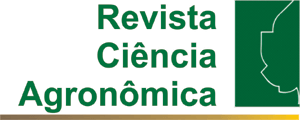The present study examined changes that took place in the physiology of three species of Rhodophyta by analysing the concentration of pigments and non-structural carbohydrates, comparatively evaluating algae collected from nature and after 28 days of laboratory cultivation. Another objective of the study was to determine whether the species retain their antifungal potential after the period of laboratory cultivation, correlating the changes in physiology and those from bioactivity. After carrying out laboratory cultivation, the results indicated a trend, in the three species of macroalgae, towards a reduction in pigment concentrations, mainly in the phycobiliproteins. For the non-structural carbohydrates no response pattern of the macroalgae was observed for the conditions evaluated. Extracts from the macroalgae, Ochtodes secundiramea and Palisada flagellifera, after laboratory cultivation showed a significant increase in antifungal potential which could be positively correlated with the change in concentration and ratios of chlorophyll-a and accessory pigments. Applying techniques of laboratory cultivation to macroalgae was an efficient tool for gaining knowledge of the physiology, and for obtaining biomass and compounds having biotechnological applications, without impacting on natural populations.
Plant physiology; Macroalgae; Nonstructural carbohydrates; Pigments






